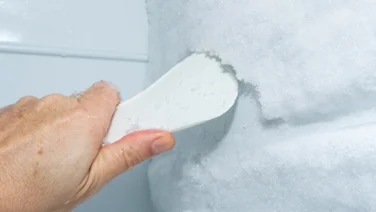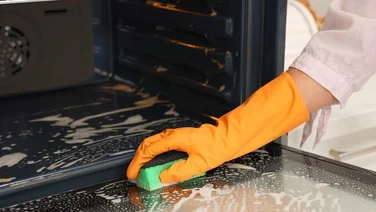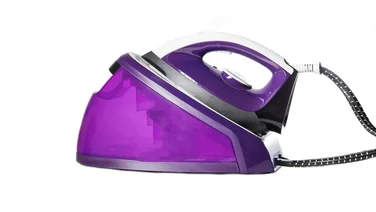To help us provide you with free impartial advice, we may earn a commission if you buy through links on our site. Learn more

A broken washing machine can be stressful, to say the least. At best, you’re faced with difficulties washing your clothes and bedding; at worst, you might be reaching for a mop and bucket.
There are a variety of problems that could call for repairs to your washing machine, from a leaky door or burst hoses to a broken motor or pump. Not even the best washing machines are immune from the occasional breakage.
This article breaks down the typical costs of getting a washing machine repaired. We’ll cover a selection of common washing machine problems, and how much each one might cost to get fixed. For some problems, you can tackle them yourself and we’ve included an approximate cost here, too.
How much does it cost to get a washing machine repaired by a professional?
There are three cost components that affect the price of washing machine repairs:
- Call-out/consultation fee
- Cost of replacement parts
- Cost of labour (per hour)
Like other tradespeople, washing machine repair engineers will charge a call-out fee, usually in the range of £50 to £130. This is the price you pay to get the person to visit your property and diagnose the problem with your washing machine. Even if the engineer can’t fix your machine (or if you’re not willing to pay the price they quote for a repair), you’ll still pay this fee.
If you go ahead with the professional repair, you’ll need to pay for any replacement parts required to fix your machine. Some components, such as motor brushes and door seals, tend to be fairly cheap. Others, such as a replacement motor, can cost so much that some users decide to buy a whole new machine – at a grave cost to the environment.
The cost of replacement parts varies widely between washing machine models and brands, so it’s a good idea to check the price of spare parts for your washing machine before you commission a repair and find yourself on the hook for any call-out fees.
Finally, you’ll pay for the washing machine repair engineer’s time. Labour costs for washing machine repairs tend to range from about £60 to £80/hr.
These costs can certainly add up. At a minimum, you’ll be splashing out over £100 to get your washing machine repaired.
| Guideline costs of repairing specific washing machine problems (supply & fit) Source for professional repair cost estimates: Checkatrade | ||
| Problem | Self-repair cost | Professional repair cost |
| Door seal replacement | ~£20 to £60 | ~£100 |
| Motor brushes replacement | ~£10 | ~£90 |
| Motor replacement | N/A to most users | ~£250 |
| Pump replacement | N/A to most users | ~£100 |
| Drum repair | N/A to most users | ~£180 |
READ NEXT: Best Bosch washing machines
Which washing machine problems can be fixed by the owner?
It’s often said that people used to be better at fixing their own things, back in the day. That might be true, but there’s recently been a reported increase in people attempting “FIY” (fix-it-yourself) repairs to appliances, with online resources providing easy-to-follow guides.

Some washing machine problems can be solved relatively easily, provided you can obtain spare parts that are compatible with your specific model. In fact, some repairs don’t require any spare parts at all. Manageable washing machine fixes include:
Replacing a burst or leaking water inlet hose or waste hose – These can usually be replaced with a generic hose and/or hose clips, as appropriate.
Excessive noise/wobble – While there are several reasons why a washing machine might be wobbling or operating noisily, it’s quite often due to overloading or uneven footing. Try washing slightly lighter loads, or adjusting the feet on the washing machine for a better balance with heavier loads.
Blocked pump or clogged pump filter – If your washing machine isn’t draining properly, check the pump and the pump filter for blockages or buildup of detritus. These components are relatively easy to locate, often behind a small door near the bottom of the front of the machine. You might be surprised at what you find – missing socks, coins and paper clips are common offenders.
Broken door seal or motor brushes – Not everyone will feel comfortable replacing these components (or diagnosing them as the cause of a problem). However, if you’re a confident FIY-er, you could save some money by carefully selecting a replacement part and installing it yourself.While some washing machine problems can be fixed by the owner, others are best left to the professionals. This could be due to the technical complexity of the repair, or the difficulty of reaching the malfunctioning component (not to mention the challenge of taking the appliance apart and successfully reassembling it).
“A number of repairs can be undertaken by a washing machine’s owner, but it’s very, very dependent on that person’s skill level or confidence,” says Kenneth Watt, director of UK Whitegoods, a supplier of spare parts for appliances.
“Anyone can change a filter or suchlike, but as soon as the machine needs to be opened, for example to change a pump, not everyone will be sufficiently confident or indeed capable.
“We see a lot of people getting out of their depth with washing machine repairs and incorrectly diagnosing the problem, whereas others are fine,” he adds.
If you’re an end user with no specialist knowledge of washing machines, then it won’t always be possible for you to diagnose the problem with your appliance. Misdiagnosis can lead people to attempt improper solutions, which wastes time and money and may lead to further problems. So, if in doubt, get your washing machine’s problem professionally diagnosed, before you decide whether to fix it yourself or commission a repair.
Good washing machine usage habits can help keep faults to a minimum. For instance, using an appropriate amount of detergent can reduce the risk of clogging in components such as valves and hoses, which can accumulate detergent residue.
READ NEXT: Best integrated washer dryers
Is your washing machine repair covered by the manufacturer’s warranty?
Before you pick up your screwdriver or pick up the phone to call a repair service, be sure to check your washing machine’s warranty status. If your appliance is currently under warranty, there’s a decent chance that it can be repaired at the manufacturer’s expense.
Washing machine warranties vary in the scope of repairs that are covered. As a rule of thumb, if the fault with the machine is due to an improperly functioning component, then you might be able to secure a free repair. On the other hand, if the fault has resulted from how you’ve used the machine (for example – a component has been blocked by a foreign body), then you’ll probably have to pay out of your own pocket. Check the terms of your washing machine’s warranty to find out which faults are covered.
| Washing machine brands and their usual warranty periods | |
| Bosch | 2 years (sometimes 5 years) |
| AEG | 2 years (sometimes 5 years) |
| Hotpoint | 1 year |
| Sharp | 2 years |
| LG | 2 years |
| Haier | 2 years (sometimes 5 years) |
| Beko | 1 year (2 years with registration) |
| Logik (Currys) | Usually 1 year |
| Samsung | 2 years |
| Miele | 2 years |
There’s significant variation in the length of washing machine warranty periods, as shown in the table above. Some manufacturers offer just one or two years of coverage, while others offer five years or more. Often, the warranty period offered is reflected in the upfront price – so the best washing machines tend to be covered for longer than the cheapest.
READ NEXT: Best integrated washing machines
How the washing machine model affects repairability
Which model of washing machine you own will have a significant impact on the ease of certain repairs.
This is largely due to how the appliance is assembled. Certain washing machines (usually at the premium end of the market) have sealed drums, where it’s welded in place. This is supposed to make the machines more robust, but doing so also limits access, making some repairs – such as replacement of faulty bearings – impracticable.
Another factor affecting the repairability of specific washing machine models is the availability of spare parts.
Under “Right to Repair” regulations, which have been in force UK-wide since 2021, washing machine manufacturers are legally required to supply spare parts to professional repair service providers (not necessarily to end users, though) for up to ten years.
Manufacturers had a grace period of two years in which to ensure the long-term supply of spare parts for their available washing machine models, so in theory, all washers sold to UK buyers since July 2023 should have assured availability of spare parts.
In practice, this might not always be the case.
“In my opinion, Right to Repair has made no impact at all on the availability of spare parts; a big fat zero,” says Kenneth Watt of UK Whitegoods.
“Most, if not all, washing machine manufacturers couldn’t give two hoots about repairability. All they care about is competing and the bottom line,” he explains. “Repairs are an afterthought for most of them.”
Of course, if your washing machine was purchased before July 2023, then Right to Repair will have no bearing on the availability of compatible spare parts.
READ NEXT: Best washing cleaners
Can a broken washing machine be traded in?
If you’ve reached the sad conclusion that repairing your washing machine is impossible (or isn’t financially viable), then you might be able to save some money on your next washer by trading in the old appliance – even though it’s broken.
Some retailers, such as AO, provide a trade-in option on washing machines. In AO’s case, the old machine is taken away when a new one (purchased from AO) is delivered. The broken machine is then transported to a recycling centre, where reusable materials such as brass and steel can be salvaged. You can expect a payout within 40 days of collection.
Recycling a washing machine will always come with significant waste, so this option really should be considered a last resort. Most washing machines last between seven and 12 years – and if your machine is towards the lower end of that age bracket (or below it), then you should be looking to a professional washing machine repair service as your first port of call.






